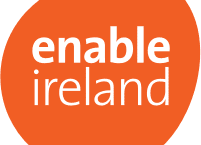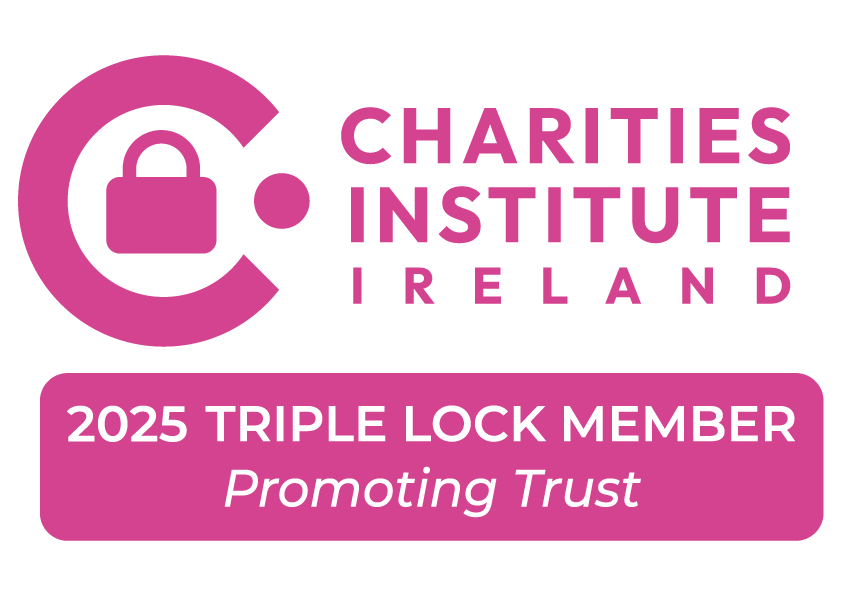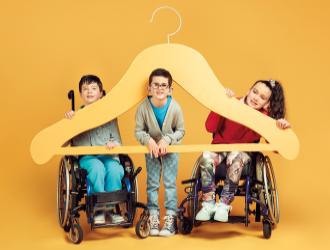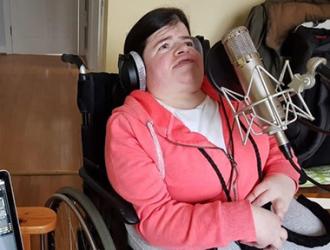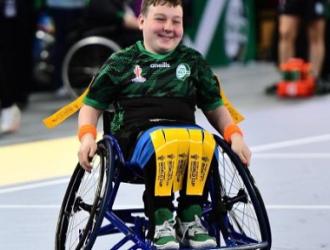The Parent Connection Report Launch
Enable Ireland and researchers from the University of Galway have launched a report which reveals the positive impact of peer support for parents of children with complex disabilities. Titled 'The Parent Connection: The Power of Peer Support for Parents of Children with Complex Needs', the report presents findings from Ireland’s first peer support pilot programme of its kind.
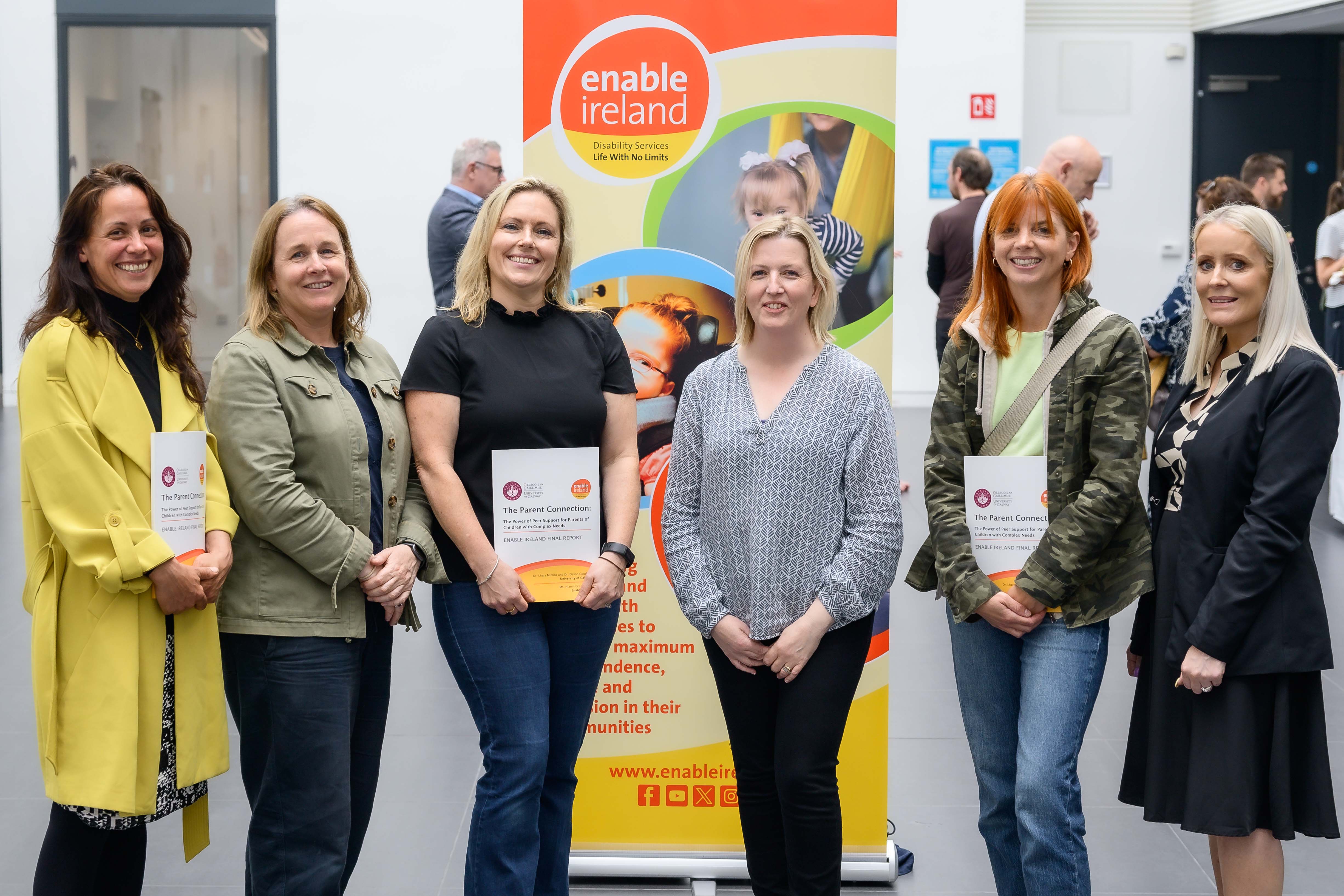
The 12-week initiative took place in 2024 across three Enable Ireland service locations - Galway City, Curraheen (Cork), and Nenagh (Co. Tipperary). 10 experienced parents were paired with 10 parents newer to the journey of raising a child with complex needs. Enable Ireland Children’s Disability Network Team (CDNT) staff members provided supervision sessions to support parents at monthly intervals. The aim: to provide emotional, social, and practical support through shared lived experience.
Principal Investigators on the pilot project were Dr Lhara Mullins and Dr Devon Goodwin from the University of Galway. Commenting on the programme, Dr Devon Goodwin said, “This project was born from our own lived experience as parents and our belief in the power of connection. We wanted to create something by parents, with parents, and for parents—because no one understands the journey like someone who’s walked it too”. Dr Lhara Mullins continued, “Through this pilot, we’ve seen how peer support can reduce loneliness and isolation, build confidence, and offer both practical guidance and emotional reassurance. It’s about creating a community where parents feel seen, supported, and empowered.”
One support parent, Sheila McCormack, was partnered with a mother in Galway whose child had a similar diagnosis to her son. She shared, “Being part of the peer support pilot was an amazing experience. I would 100% have benefited from support like this in the early days after my son was born. I was partnered with a parent whose young child had also been diagnosed with Down syndrome—something I went through ten years ago with my own son. I remember how overwhelming and lonely those early days were. When you first get a diagnosis, it’s a lonely, scary time. You’re dealing with a new baby, sometimes medical issues, and the emotional impact is huge. Being able to say to another parent, ‘It’s going to be ok,’ and really mean it—because you’ve lived it—that’s powerful. We’ve built a real friendship. We meet regularly and text often—just recently she asked me about summer camps my son did. It’s been amazing to be part of something that helps parents feel seen, supported, and less alone.”
The mixed-method study using both qualitative and quantitative methods found meaningful improvements in:
• Parental self-efficacy – Project had a positive effect on how parents perceived their ability to manage the complexities of parenting a child with additional needs.
• Perception of parental supports –Project led to meaningful improvement in parent’s perceptions of their current support system after the program.
• Resilience and well-being – A notable improvement on overall scores on resilience and well-being scales.
The report also highlights the ripple effect of peer support, with benefits extending to support parents and Enable Ireland staff, who gained deeper insights into the lived realities of families.
• Scaling up peer support initiatives nationally to complement existing formal service provision.
• Embedding parents in the planning and delivery of future peer support programmes.
• Conducting further research into the unique needs of parents of autistic children.
"When our youngest was born we knew straight away that she had Down Syndrome (DS) and that diagnosis was confirmed very quickly. That’s not always the case for parents of children with complex needs but for us we knew from the earliest time which meant we were linked in with support services really quickly. We had a fantastic community nurse and professionals who supported us but a really important person in my life was a neighbour who also had a child with DS. Her child was only a little older than ours but that relationship became very important to me and this experience is what predominantly motivated me to take part in this pilot as a support parent.
When you have a child with a disability, you need a person that you can talk to openly to in an authentic way, who is on the same journey that you are on. Someone who has been through all the emotions that you are going through. Someone that you can get angry or sad with but who can also tell you from personal experience that it does get better and give you the benefit of their lived experience (in terms of engaging with service providers, the HSE, medical professional, schools, etc.) The parent support piece is so important because it is not a clinical or a service-based relationship, you are equals. That relationship and support was very valuable and important to me.
There is also lots of practical support that another parent can give you with advice about applying for grants or local groups and services.
While the parent I was matched with has a child with a different diagnosis, there was still a lot of common ground between us and our experiences for me to feel like I could provide support and value to that parent. When we met up, we tended to ‘walk and talk’ so it felt relaxed, informal and less intimidating for both of us. It was a safe space to just chat and share. I got a lot out of participating in the pilot and I know the parent I was matched with did as well. I am a very active parent advocate now but that took time. You have to come to terms with your new future and be comfortable in your own shoes before you can walk the road with someone else.
I would love to see the pilot expanded to more parents, ideally matching people with similar diagnoses and possibly looking at how to include more dads in the experience as well. Within the Down Syndrome community there are a lot of opportunities to meet other parents but, in my experience, that is something that is less common among parents of autistic children, so it would be great to see this type of parental support expanded to this group as well."
The Parent Connection: The Power of Peer Support for Parents of Children with Complex Needs Executive Summary
